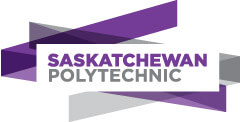About Early Childhood Education Diploma in Saskatchewan Polytechnic
Program Overview
As an early childhood educator, you play a big role in how kids shape their lifelong view of learning. You connect with kids and their families. You use reading, writing, art, music, drama and science to enrich young lives. It’s a big responsibility … and a lot of fun.
Saskatchewan Polytechnic's two-year Early Childhood Education (ECE) diploma program is offered on-campus in Saskatoon or Regina, or through regional colleges or through distance learning wherever you live.
It is a highly respected program that integrates the most current research on early childhood education. You’ll build on the knowledge, attitudes and skills you developed in the ECE certificate program, including:
- administration and child care regulations
- children with diverse abilities
- child guidance techniques
- family and community relationships
- observation, assessment and documentation
- play environments and program planning
- programming for infants, toddlers and school age children
Build Your Confidence and Independence
The ECE diploma program continues where the ECE certificate program left off. Throughout the year, you’ll have opportunities to work independently with children in a variety of child care situations. You’ll also participate in two 6-week practicums in a child care or preschool setting.
Through practical experience, you’ll get the feedback you need to develop best practices, recognize stages of development and understand the impact of environment on behaviour. Saskatoon students will participate in course work at the Early Childhood Demonstration Centre.
Become a Level III ECE
When you graduate, you’re eligible to apply to become a licensed Level III Early Childhood Educator (ECE). If you plan on becoming a child care centre director, you must have your ECE III. If you’re interested in going farther, you’ll be able to transfer some of your credits to the University of Regina’s Bachelor of Education degree program in Elementary Education.
Career and Salary Information
Your Career
There’s high demand for Level III ECEs in Saskatchewan. Your diploma lets you work in group care settings with children from birth to age 12. Start your career in a child care centre, preschool, elementary school, Kids First/Aboriginal Head Start program, family day homes and private homes.
Get involved in programming for infants and children with diverse abilities, or become an inclusion coordinator, preschool teacher, child care centre director, early childhood interventionist or family support worker.
For more information, contact the Student Employment Services at the Saskatchewan Polytechnic campus nearest you.
Academic qualification equivalents:
- Grade 12 with a minimum 60% in each of the following subjects: English Language Arts A30, English Language Arts B30, Chemistry 30 and Pre-Calculus 30
English language requirements (one of the below):
- IELTS : Overall minimum score of Band 6.5 with a minimum score of 5.0 in each component.
- TOEFL : An overall minimum score of 81 on the Internet-based Test of English
- PTE : A minimum score of 63 with minimum component scores of 50.
Saskatchewan Polytechnic Highlights
| Type |
Public |
| Campus Setting |
Urban |
| Application mode |
Online and Paper mode available |
| Graduation rate |
62% |
| Acceptance rate |
96% |
| Number of Students |
16,008 |
| Overall cost of living |
14,762 CAD |
| Academic calendar |
Semester based |
| % of International students |
6% |
| Number of campuses |
4 |
| Medium of instructions |
English |
| Undergraduate Tuition fee |
14,044 CAD |
| Postgraduate Tuition fee |
16,426 CAD |
| Cost of living |
694 -1147 CAD per month |
Saskatchewan Polytechnic First-Year Tuition Fees And Living Expenses For International Students
Over the course of one academic year, the following graph displays tuition and living expense estimates in Canadian currency for one full-time international undergraduate student. Please bear in mind that these are only estimates; actual pricing will vary depending on your needs and preferences. Other factors to consider include currency changes, visa and study authorization fees, and vacations back home.
- For international students, the overall fees will range from:-
| Particulars |
Amount |
| Administrative fees |
50.00 to 150.00 CAD |
| Application fees |
150 CAD |
| Student association fee |
95.00 to 445.00 CAD |
| Non-refundable fee at the start) |
1,000 CAD |
| Tuition fee range |
6,195 to 18,089 CAD |
| Laboratory fee |
100.00 to 409.00 CAD with no fees for
some courses which do not have a lab service. |
| Books and Supplies |
200 to 3,725 CAD |
| Technology fee |
50 to 146 CAD |
- For a student of Saskatchewan Polytechnic the required financials (Cost of Attendance) can be:-
| Description of Financials |
Amount in CAD |
| Average cost of tuition |
11245.77 CAD |
| Cost of living |
10799.39 CAD |
| Application fee |
150 CAD |
| Estimated total (per year) |
22,195.16 CAD |
